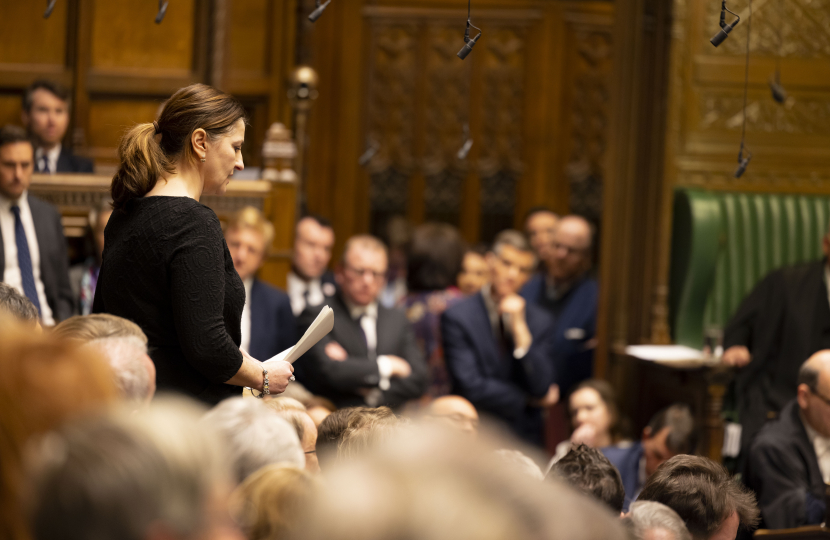
The Illegal Migration Bill came back to the House of Commons this week and will return again next week from the Lords in a legislative process called ping pong.
In essence, the legislation seeks to deter people from crossing the English Channel by toughening up the rules and conditions around seeking asylum.
It is imperative we stop the boats, the dangerous journeys they make and the criminal gangs they enrich.
As a country we are not alone in trying to navigate this complex issue.
As an island nation, our challenge is very visible, and I believe this is something most people want to see stopped, not least because they know that illegal crossings will inevitably compromise the support our country can make available to the most vulnerable.
The Government listened to good arguments and concerns from across the House over the Bill’s provisions. Some of my own questions rested on the detention of young children and pregnant women (both a tiny minority of small boat passengers) and on the identification of victims of modern slavery.
The legislation is wide-ranging, as it must be, and complex but its aims are simple. Stop the boats. A cap will also be introduced for the number of refugees we are able to take on a yearly basis – a number which will be arrived at with local councils according to their ability to provide shelter and services. Eastbourne and East Sussex are already under tremendous pressure on both fronts.
Our country has a very long history of helping those fleeing danger. From the Huguenots back in the 1600s to right now and those in danger from Hong Kong, from Afghanistan, Syria and Ukraine. Since 2015, we have offered sanctuary to over 450,000 people.
And the challenge I put to the opposition who say otherwise is this: if we do not control our borders then what? How many of the UNHCR’s estimated 108.4 million forcibly displaced people worldwide - who would all qualify for asylum - do they believe Britain can provide for?
The government will work with the UNHCR to identify those most in need, so the UK remains a safe haven for the most vulnerable and that is vitally important.
If you are concerned about this issue pleased do get in touch, I would be very happy to speak further.

